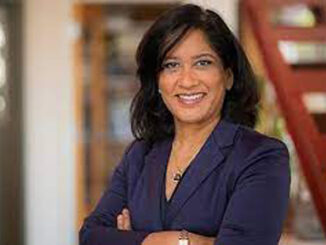
Washington (TIP)- Committing themselves to expanding their already growing trade relationship, India and the United States (US) have decided to build on the environment of trust to create resilient supply chains, resolve their existing trade disputes at the World Trade Organisation (WTO) through bilateral mechanisms, work on expanding market access for each other’s products, and intensify their engagement through meetings of specific trade-related working groups on a quarterly basis.
At the 13th Trade Policy Forum (TPF) ministerial talks held in Washington DC on Wednesday, January 11, Union minister for commerce and industry Piyush Goyal and US Trade Representative Katherine Tai hailed the fact that bilateral trade in goods and services had reached $160 billion in 2021, but also recognised that the full potential of the trade relationship remained “unfulfilled”, according to a joint statement released at the end of the talks.
Goyal told reporters that the TPF, since its relaunch in November 2021, had evolved into a “robust and outcome-oriented discussion” and was helping create a “smoother, more friendly and trusted environment for businesses to expand their trade and investment between the two countries”.
US welcomes draft data law
Goyal said that the US has welcomed India’s draft Digital Personal Data Protection Bill that was released for public consultations at the end of November and appreciated American suggestions in the regard.
Goyal said, “I must place on record our deep appreciation for the many guidance notes or suggestions we have received from the US from time to time on our digital laws and data protection and privacy laws so that we can align them with the needs of the world and help Indian businesses with their outreach with digital technologies.”
Pointing out that India is one of the largest suppliers on the information technology services side to the US, and that there is a “shared interest on both sides” to have a greater flow of data, Goyal said, “The new law placed for public consultations by the ministry of electronics and information technology (Meity) was very very much appreciated by the US side and they do see that our effort to align the needs of industry, while maintaining the highest standards of data protection and privacy, has been brought out beautifully in the new law. The US side has expressed their prima facie satisfaction with the new law and will continue to engage with Meity.”
Besides highlighting the importance of a conducive environment for digital trade, the joint statement said that Goyal highlighted India’s interest in the potential of digital health, “particularly telemedicine services as an element of continuity of care during health emergencies.”
Trade outcomes
Wednesday’s talks opened up the prospect of the export of wild caught shrimps from India to the US. The joint statement said that both sides had welcomed the finalisation of the turtle excluder device (TED) design, whose trials will help minimise the impact of fishing on sea-turtle populations. Goyal explained that wild caught shrimp exports had been banned by the US because of the concerns of the impact on turtles. “We hope that these trials in India will complete in the coming few months so that wild caught shrimps can be exported to the US.”
India and the US have also agreed to create a new working group on resilient trade.
The group, according to the joint statement, will focus on trade facilitation “which is particularly relevant to the construction of durable and resilient supply chains”; sustainable and inclusive growth “including cooperative engagement to promote labour rights and workforce development”; expanding dialogue on “good regulatory practices”; and the role of trade in contributing to environmental protection, including issues related to “mobilisation of sustainable finance and scaling up of clean technologies”, circular economy, and sustainable lifestyle choices.
India also highlighted, according to the joint statement, its interest in restoration of its beneficiary status under the US Generalized System of Preferences (GSP), which was revoked by the Donald Trump administration. But Goyal said that while he had placed the demand on record, it was not an issue that ranked high up on Indian priorities.
Source: HT





Be the first to comment